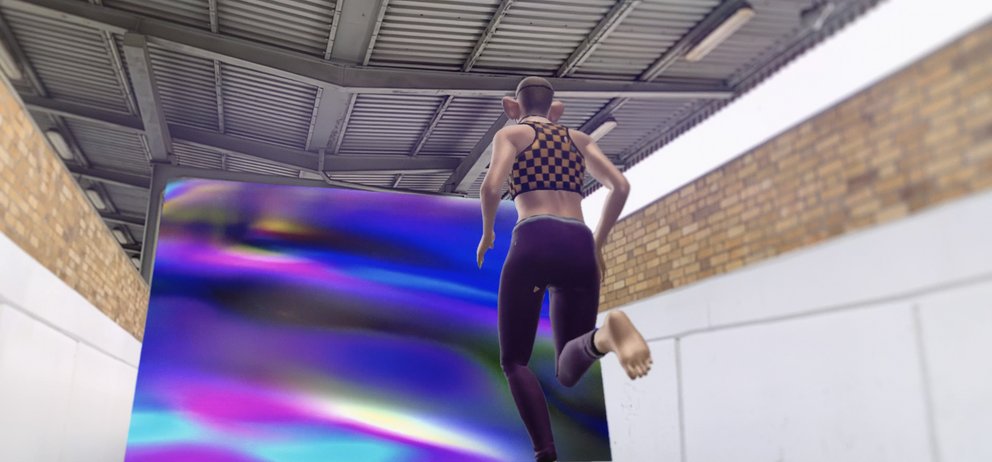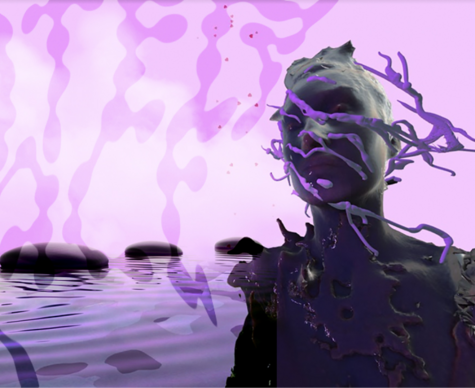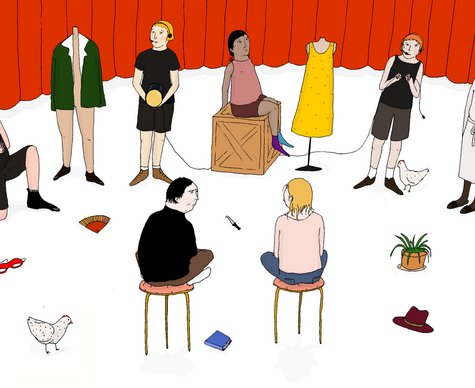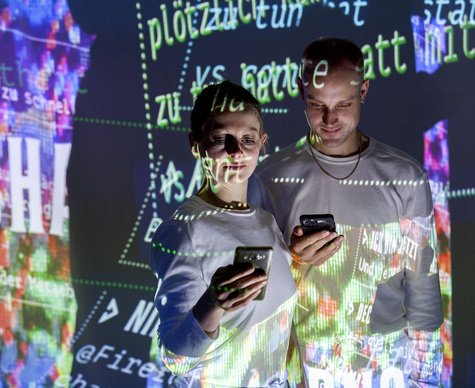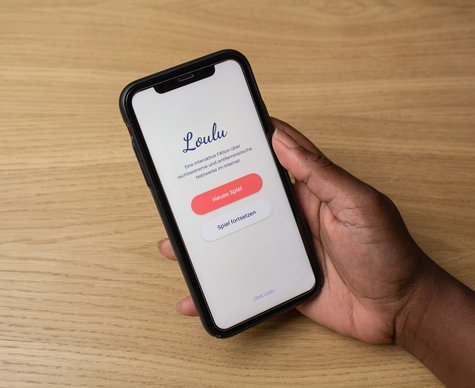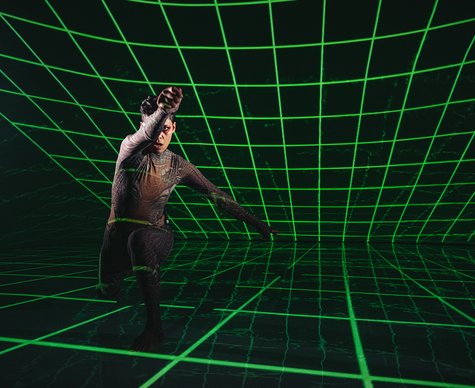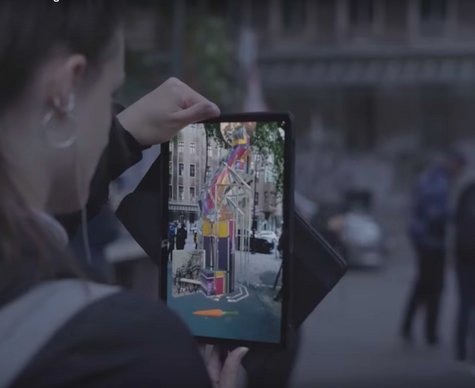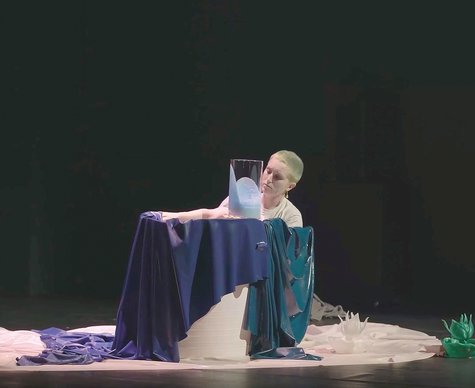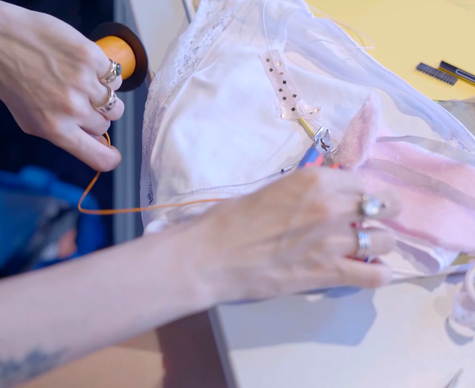Rethinking intelligence
by James Bridle
Overpowering robots, ubiquitous algorithms? Our current conception of artificial intelligence is very one-sided and gloomy, says artist and author James Bridle. Bridle argues for a new understanding of what intelligence actually means – beyond the definition that it is something singularly human. For what if we created future forms of machine intelligence based on other models? Can turning away from humans as the reference point for all definitions and things be the first step towards a more just and regenerative future?
In the last few years, I have given talks at conferences and spoken on panels about the social impacts of new technology, and as a result am sometimes asked when ‘real’ AI will arrive – meaning the era of superintelligent machines, capable of transcending human abilities and superseding us. When this happens, I often answer: it’s already here. It’s corporations. This usually gets an uncertain halflaugh, so I explain further. We tend to imagine AI as embodied in something like a robot, or a computer, but it can really be instantiated as anything. Imagine a system with clearly defined goals, sensors and effectors for reading and interacting with the world, the ability to recognize pleasure and pain as attractors and things to avoid, the resources to carry out its will, and the legal and social standing to see that its needs are catered for, even respected. That’s a description of an AI – it’s also a description of a modern corporation. For this ‘corporate AI’, pleasure is growth and profitability, and pain is lawsuits and drops in share holder value. Corporate speech is protected, corporate personhood recognized, and corporate desires are given freedom, legitimacy and sometimes violent force by international trade laws, state regulation – or lack thereof – and the norms and expectations of capitalist society.
(…)
The science fiction writer Charles Stross likens our age of corporate control to the aftermath of an alien invasion. ‘Corporations do not share our priorities. They are hive organisms constructed out of teeming workers who join or leave the collective: those who participate within it subordinate their goals to that of the collective, which pursues the three corporate objectives of growth, profitability, and pain avoidance,’ Stross writes. ‘We are now living in a global state that has been structured for the benefit of nonhuman entities with nonhuman goals.’
Put like that, it’s not hard to see why the masters of today’s largest corporations fear their own obsolescence at the hands of artificial intelligence. No longer at the top of the pile, they would be as vulnerable as the rest of us to allpowerful entities which do not share their interests, and which would at best cast them aside, and at worst physically rearrange them into a more useful consistency.
The definition of intelligence which is framed, endorsed and ultimately constructed in machines is a profitseeking, extractive one.
What I understand from this gloomy appraisal is that our conception of artificial intelligence – and thus, being modelled on ourselves, of intelligence in general – is fundamentally flawed and limited. It reveals that when we talk about AI, we’re mostly talking about this kind of corporate intelligence, and ignoring all the other kinds of things that AI – that any kind of intelligence – could be.
That’s what happens, it would seem, when the development of AI is led primarily by venturefunded technology companies. The definition of intelligence which is framed, endorsed and ultimately constructed in machines is a profitseeking, extractive one. This framing is then repeated in our books and films, in the news media and the public imagination – in science fiction tales of robot overlords and allpowerful, irresistible algorithms – until it comes to dominate our thinking and understanding. We seem incapable of imagining intelligence any other way – meaning we are doomed not only to live with this imagining, but to replicate and embody it, to the detriment of
ourselves and the planet. We become more like the machines we envisage, in ways which, in the present, have profoundly negative effects on our relationships with one another and with the wider world.
One way to change the nature of these relationships, then, is to change the way we think about intelligence: what it is, how it acts on the world, and who possesses it. Beyond the narrow framing put forward by both technology companies and the doctrine of human uniqueness (the idea that, among all beings, human intelligence is sin gular and preeminent) exists a whole realm of other ways of thinking and doing intelligence. It is the task of this book to do some of that reimagining: to look beyond the horizon of our own selves and our own creations to glimpse another kind, or many different kinds, of intelligence, which have been here, right in front of us, the whole time – and in many cases have preceded us. In doing so, we might change the way we think about the world, and thus chart a path towards a future which is less extractive, destructive and unequal, and more just, kind and regenerative.
On this journey, we will not be alone. In the last few decades, a very different imagining of intelligence has been underway. Emerging, on the one hand, from the biological and behavioural sciences, and on the other from the growing appreciation and integration of indigenous and nonWestern systems of knowledge, this new way of understanding intelligence runs counter to narratives of singlemindedness and avarice. And much more significantly, for our story, it challenges the idea that intelligence is something uniquely or even especially ‘human’ at all.
What would it mean to build artificial intelligences and other machines that were more like octopuses, more like fungi, or more like forests?
Until very recently, humankind was understood to be the sole possessor of intelligence. It was the quality that made us unique among life forms – indeed, the most useful definition of intelligence might have been ‘what humans do’. This is no longer the case. Thanks to decades of work, careful science, much thinking and the occasional but essential cooperation of nonhuman colleagues and partners, we are just starting to open the door to an understanding of an entirely different form of intelligence; indeed, of many different intelligences.
From bonobos shaping complex tools, jackdaws training us to forage for them, bees debating the direction of their swarms, or trees that talk to and nourish one another – or something far greater and more ineffable than these mere parlour tricks – the nonhuman world seems suddenly alive with intelligence and agency. It’s a trick of the light of course: these other minds have always been here, all around us, but Western science and popular imagination, after centuries of inattention and denial, are only just starting to take them seriously. And taking them seriously requires us to reevaluate not only our idea of intelligence, but our idea of the entire world. What would it mean to build artificial intelligences and other machines that were more like octopuses, more like fungi, or more like forests? What would it mean – to us and for us – to live among them? And how would doing so bring us closer to the natural world, to the earth which our technology has sundered, and sundered us from?
(…)
I will also make the case for the agency and personhood of technology itself, or perhaps of technology yet to come: the moment, much prophesied, when our machines become selfsufficient, selfaware, perhaps selfgoverning. Such a moment does not strip us humans of the responsibility or agency to effect change in our own attitudes and behaviours. On the contrary, thinking about the agency of technology is an opportunity to think seriously and concretely about how we might ensure greater justice and equality for all of the planet’s inhabitants: human, nonhuman and machine. Technology, for now, remains mostly in our hands, and it remains within our capability to repair, restore and regenerate its entanglement with and effects upon the world.
It was not technology which cast us out of Eden, or sent us fleeing from Babel. It was not technology which designated nonhuman life as brutish or mechanical, fit only for the slaughterhouse and the vivisection table. That was greed and hubris, Aristotle and Descartes, the edifice of human exceptionalism and Western, European philosophy. Technology embodies the ideas and metaphors of its time, but such tools are turnable to other ends, and so are we. As the poet and visionary William Blake wrote: ‘The tree which moves some to tears of joy is in the eyes of others only a green thing that stands in the way. Some see nature all ridicule and deformity . . . and some scarce see nature at all. But to the eyes of the man of imagination, nature is imagination itself.’
Technology embodies the ideas and metaphors of its time, but such tools are turnable to other ends, and so are we.
More than ever, it is time for reimaginings. Yet this act of imagination cannot be ours alone. To think against human exceptionalism requires us to think outside and beyond it, and to recognize in Blake’s vision the deep truth of his words: nature is imagination itself. In this truth is encapsulated the philosophy behind the phrase the more-than-human world.
Coined by the American ecologist and philosopher David Abram, the ‘morethanhuman world’ refers to a way of thinking which seeks to override our human tendency to separate ourselves from the natural world. This tendency is so pronounced it is rife even within environ mentalism, the movement which seeks to bring us closer to nature and thereby to preserve it. For in so framing our intentions, we have already set up an implicit separation between ourselves and nature, as if we were two separate entities, unbound by inseparable ties of place and origin. Conventional terms such as ‘the environment’, and even ‘nature’ itself (particularly when opposed to ‘culture’), compound the erroneous idea that there is a neat divide in the world between us and them, between humans and nonhumans, between our lives and the teeming, multitudinous living and being of the planet.
In contrast, the ‘morethanhuman world’ acknowledges that the very real human world – the realm of our senses, breath, voice, cognition and culture – is but one facet of something vastly greater. All human life and being is inextricably entangled with and suffused by everything else. This broad commonwealth includes every inhabitant of the biosphere: the animals, plants, fungi, bacteria and viruses. It includes the rivers, seas, winds, stones and clouds that support, shake and shadow us. These animate forces, these companions on the great adventure of time and becoming, have much to teach us and have already taught us a great deal. We are who we are because of them, and we cannot live without them.
(…)
The morethanhuman world demands our recognition, for without it we are nothing.
The notion of a morethanhuman world further intimates that these things are beings: not passive props in the drama of our own preoccupations, but active participants in our collective becoming. And because that becoming, that potential flourishing, is collective, it demands that we recognize the beingness, the personhood of others. The world is made up of subjects, not objects. Everything is really everyone, and all those beings have their own agency, points of view and forms of life. The morethanhuman world demands our recognition, for without it we are nothing. ‘Life and Reality’, wrote the Buddhist philosopher Alan Watts, ‘are not things you can have for yourself unless you accord them to all others. They do not belong to particular persons any more than the sun, moon and stars.’
(…)
While the machines we are constructing today might one day take on their own, undeniable form of life, more akin to the life we recognize in ourselves, to wait for them to do so is to miss out on the full implications of morethanhuman personhood. They are already alive, already their own subjects, in ways that matter profoundly to us and to the planet. In the words often attributed to Marshall McLuhan (but more properly ascribed to Winston Churchill): ‘we shape our tools, and thereafter our tools shape us.’ We are the technology of our tools: they shape and form us. Our tools have agency, and thus a claim upon the morethanhuman world as well. This realization
allows us to begin the core task of a technological ecology: the re integration of advanced human craft with the nature it sprung from. Finally, this book has one further aim. Given that we humans and the things we make are inextricably entangled with the morethanhuman world, and given that rethinking our relationship with that world demands that we acknowledge its existence and agency, we must think a little about the form that relationship might take. Part of that relationship is simply care: a constant attentiveness to the meaning and affect of our entanglement. The rest, unfortunately, is politics: the hard, meaty detail of debate, decisionmaking, power relationships and status. This is where, I believe, the computational world has something crucial to contribute to our morethanhuman community, something which might in time justify its inclusion in that commonwealth, should justification be needed. The infinite complexity of computation, which we have divined or dreamed up from the material world, and instantiated in the form of machines, has much to teach us about how we might relate to one another. This is the subject of the final part of the book: machines which, along with honeybees, sacred rivers, incarcerated elephants and roulette wheels, might lead us towards a more just
and equitable, a morethanhuman, politics.
We have come, as the shock of morethanhuman consciousness testifies, to think of ‘nature’ as something separate from ourselves. When we speak of the fantastical futures envisioned by high technology, we speak of a ‘new’ or ‘next’ nature, some utopia of computation which further alienates and supplants the actual ground we came from and still stand upon. It is time to put aside such adolescent solipsism – both for the sake of ourselves and of the morethanhuman world. There is only nature, in all its eternal flowering, creating microprocessors and data centres and satellites just as it produced oceans, trees, magpies, oil and us. Nature is imagination itself. Let us not reimagine it, then, but begin to imagine anew, with nature as our coconspirator: our partner, our comrade and our guide.
This text is a slightly modified excerpt from the introduction to James Bridle’s book “Ways of Being. Beyond Human Intelligence”, published by Penguin Random House UK.
Part of “Spy on Me #4”:

James Bridle
What Does The River Want?
27.9.2022, 20:00 / HAU1
Image above: NewfrontEars
